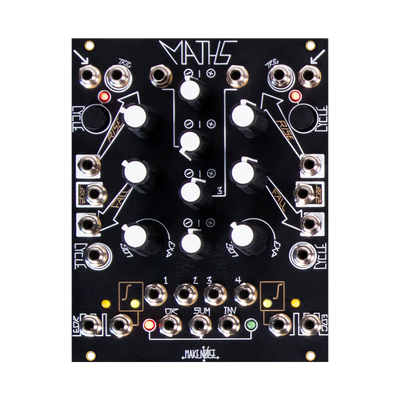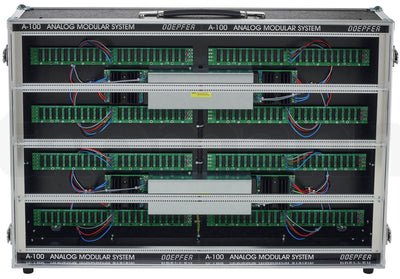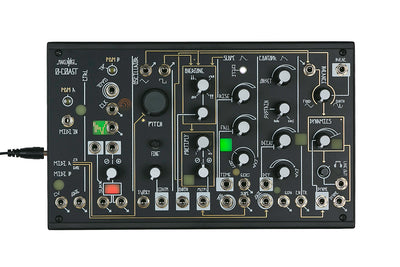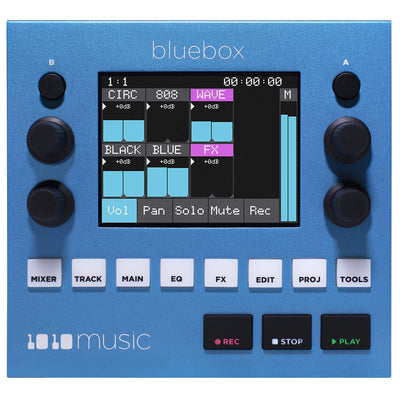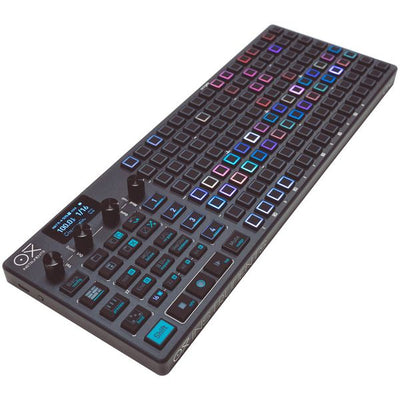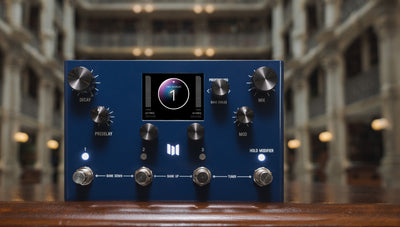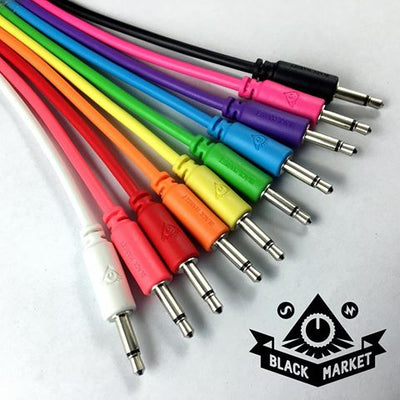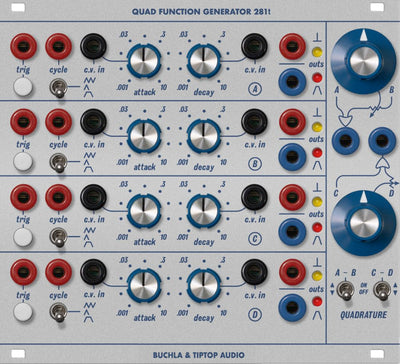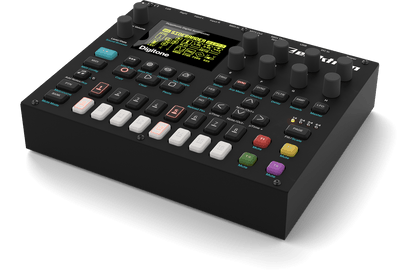Buchla is ecstatic to revive the Music Easel for its third run in 50 years. We first released the updated 208 Stored Program Sound Source, dubbed the Easel Command, with expanded MIDI and USB capability. Next came the update of the Easel Program Manager – a complete kit for storing and recalling sounds sources, even more rapidly than imagined in 1973. Our new 218 Touch Activated Voltage Source provides the optimal input facility, as originally envisioned. The Music Easel (retro) comes in a more compact aluminum briefcase style enclosure, with input and output streamlined to audio and MIDI, but shares the same control and sound production modules of the 218e and 208c.
Stored Program Sound Source Model 208C
The sound source of the Music Easel is the 208C, which includes a complex oscillator and a modulation oscillator (which can also serve as another voice), each with independent switchable waveforms, as well as a noise generator, allowing for rich and intricate sound design. The 208C also features a five-stage sequencer, envelope generator, pulser and modulation source – with switchable triggers – allowing for complex patterns and evolving textures. The dual low pass gate provides dynamic control over the tone and amplitude of the sound, as well as natural-sounding decay and sustain. The 208C has a number of modulation sources, including a random voltage generator, the envelope generator, modulation oscillator, and an envelope detector. These sources can be used to modulate various parameters via the extensive patchfield – creating movement, texture, and complexity. The 208C also includes a mixer section with spring reverb.
Touch Activated Voltage Source Model 218e (v3)
The first design appeared in the 1973 release of the Buchla Music Easel and named for the spacecraft that delivered astronauts to the moon. Providing the familiar piano key layout for this early mobile music machine, the additional controls and capabilities were an interface for exploring uncharted musical territory. With the new version 3, it’s been elevated with a new foundation of stable, modern electronics with incredible sensitivity and and accuracy – the lightest touch will produce triggers and control voltages. The adjustable sensor has the dynamic range and durability to handle your playing. The new texture not only improves the sensing, but provides a satisfying tactile experience. As always, pressure is an expressive output, adding an extra dimension to the control. MIDI outputs velocity and polyphony, as well as channel pressure, making the 218e a uniquely expressive controller. The 218e includes portamento and an arpeggiator, which can be driven by external inputs and are allowed to interact with the automated notes to make patterns more complex. Additional controls allow you to blend different patterns and randomness to easily change from the expected to the surprising. The classic preset voltage knobs offer several possible ways to shift your sounds into new territory. Not only can the knobs be used for quick access to voltages for your patch, they can control arpeggiation modes and octave shifting. Pads output pulses for additional control. The 218e also gives you a unique interface to playing your existing MIDI gear and soft synths. Each touch outputs note name, channel pressure, and velocity for every note, along with sustain controls from a pedal. Polyphonic MIDI mode lets you play chords. The touchstrip can act as a pitch bend control, or as a mod wheel for additional expressive control. Easily configured using the front panel controls, you can send notes and controls on any MIDI channel.


